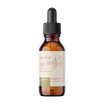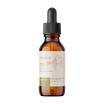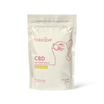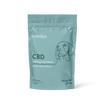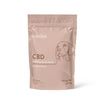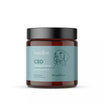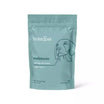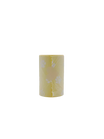Horse Care
Horses are beautiful, majestic creatures that require your love and undivided attention. Horse care is much more than providing food and shelter — it’s about building a relationship and a deep understanding of their personalities. Equine care is more nuanced and complex than your typical pet because they need your attention 365 days a year, rain or shine.
A horse that is well-cared for can live for over 30 years, depending on the breed. Equine care requires dedication, patience, and a warm heart. As a horse owner, you may even learn awesome tips and tricks along the way. Hopefully, this guide will teach you the basics of horse care and help you embark on your lifelong journey with a new companion.
Why Is It Important To Care For Your Horse?
Caring for your horse is like caring for any other pet — more dedication and love help these magnificent animals live longer, healthier, and stronger. But since horses are large animals that need plenty of food, water, and maintenance, caring for one is almost a full-time job! Prepare to devote hours tending to these beautiful creatures.
Horses need more attention than your average house pet, and you should show them the same kind of love that you would show your dog or cat. They have emotions and needs just like us and would benefit significantly from proper care. If you plan on owning a horse, be prepared for the many challenges that lay ahead!
What Happens If You Neglect Basic Horse Care Needs?
Neglecting basic horse care, such as leaving dirty stalls or not providing vaccinations, can lead to severe health issues that can cost thousands of dollars in medical bills. Forgetting annual veterinary visits, dietary needs, or hoof maintenance can all cause significant discomfort, stress, and in worst cases, death for your horse.
Many new horse owners see the beauty and magnificence in owning a horse, but they often lack the necessary knowledge for their care. This inexperience can lead to neglect and oversight of common health issues. After all, most people wouldn’t raise a baby without researching proper practices and useful care techniques, so why own a horse without learning the basic horse needs?
What You Need To Know About Horse Care
Horse care is not cheap! The average horse owner spends around $4000 per year on their horse’s food and supplies. The purchase price of the typical horse is often less than the yearly upkeep and maintenance. All that said, ensure that you have plenty of financial freedom before purchasing a horse in case of emergencies or other expenses that may come up.
Quality care is also more than supplying the bare minimum for your horse. Just meeting the most basic survival needs is not providing them with a satisfying, robust life. Take more liberties in treating them to premium grooming care or special horse treats. This shows that you truly care about their quality of life.

What You Need Before You Get A Horse
Now you’ve weighed your options and ultimately decided you are up to the challenge of raising and owning a horse. You’re extremely excited and envision yourself riding your horse with your hair flowing in the wind. But what comes next, and how do you prepare for one of the biggest decisions of your life? Here are a few things you should try to prepare before bringing a horse home.
- Have a wide, open pasture for the horse to graze and roam in. Make sure it has no dangerous hazards like large holes, farm equipment, or wire fences
- Secure the pasture with safe, protective fencing to not only keep the horse in, but also to keep predators out. Use wood, plastic, vinyl, or mesh fencing to protect your horse from harm
- Invest in a dry shelter to protect your horse from the elements, like a hot summer sun or cold winter rain
- Ensure access to an unlimited supply of fresh, clean water (change it daily!)
- Provide a salt block or salt lick to maintain electrolyte and pH levels
- Purchase sufficient horse feed and high-quality hay or grass
- If possible, add a companion to the mix to prevent loneliness. Other farm animals like donkeys, sheep, goats, or even more horses make great friends for your horse.
Horse Care Tips For Beginners
Horse care may seem complicated, overwhelming, and expensive at first, but the return is highly rewarding! There are few experiences more beautiful than watching a horse thrive and grow. With unwavering love and commitment, you’ll quickly outgrow the learning curve and become a pro in no time!
Regular Food & Water Supply
The average horse will consume about 2% of its body weight in hay and feed per day. Of course, this amount can differ based on the horse’s activity levels, but your horse should have sufficient amounts of food and water at all times. Lack of food or water can cause ulcers or dehydration that can lead to severe health conditions.
Since horses have relatively small stomachs, they graze and eat throughout the day instead of consuming two or three large meals. You can consult with a veterinarian to determine your horse’s dietary needs to ensure they are maintaining an appropriate weight.
Try to limit the grains that you feed your horse because they have very sensitive digestive systems. An excess of grains (including oats, barley, wheat) can cause intestinal inflammation, digestive issues, or abdominal pains (colic). You should make any changes to your horse’s diet slowly and gradually to avoid digestion issues.
Always feed your horse high-quality hay, and replace moldy hay right away. They should always have fresh, clean water. It’s essential to change your horse’s H2O daily to prevent bacteria or viruses from multiplying in the water and entering your horses’ system.
Lastly, place a salt or mineral block next to your horse’s food to help them maintain an adequate electrolyte balance. Since horses are consistently exercising and sweating, they are constantly losing water. Dehydration can result in an electrolyte or nutrient deficiency, which can lead to weakness, muscle cramps, or decreased performance.
CBD For Horses
CBD products for pets have taken the world by storm because of their ability to provide calming and soothing effects. What’s more, many CBD pet products contain superfood ingredients that boost your pet’s wellbeing!
CBD can curb skittish behavior by helping a nervous horse relax. These products are perfect for horses adjusting to a new home or traveling horses that are constantly entering new environments.
CBD horse pellets are one of these new products that many horse owners are unaware of. They are loaded with nutrients such as protein, fiber, and fatty acids to enhance your horse’s mood or joint mobility.
CBD oil can also be an excellent way to reduce tense or nervous behaviors. You can conveniently add CBD oil into their food or water to provide a little clarity and serenity to start their day.
Hoof Maintenance
Grooming is an important part of your horse’s daily routine, particularly the hooves. When you bathe your horse, be sure to clean their hooves as well with a hoof pick. You should trim the hooves about once every 6-8 weeks.
Untrimmed hooves can be very painful for horses and can even cause lameness in some cases. The hooves can grow out and become twisted if left uncared for, making it difficult for your horse to walk.
You can trim the hooves yourself if you know how or hire a farrier (hoof specialist). Farriers are also skilled blacksmiths that can shape and fit horseshoes.
Grooming Care
Ideally, you should groom your horse every day, but if you don’t have the time, shoot for at least a few times a week. Brushing their coats can help distribute skin oils that keep them looking shiny and healthy. Brushing is also a great time to check for any skin irritations, cuts, or rashes.
Since your horse’s teeth are constantly growing, they should be trimmed or filed at least once or twice a year. Uneven teeth can lead to difficulty chewing or even sharp points that cause pain. Veterinarians can also use this opportunity to check for any dental diseases or rotting teeth.

Have Them Checked By A Veterinarian Regularly
Plan at least one veterinary visit per year to have your horse checked out by a professional. Horses need annual tetanus, influenza, and herpes vaccines to protect against highly contagious transmissions from other horses. Veterinarians can provide these vaccinations, along with a complete health checkup and dental care.
Annual checkups can help prevent possible health complications, potentially saving you tens of thousands of dollars in medical bills. This is one duty you should not forget!
Shelter
Just like us, horses need a dry, clean, warm shelter to protect them from the rain, wind, snow, and sun. They should always have a shady place to escape when the sun gets hot or a warm area to get away from the cold rains. Enclosed shelters can also protect your horse from pests, insects, and predators.
Remember to keep their stall or shelter clean every day! Manure can breed flies and attract rats, which pose a serious health hazard to your horse.
Exercise
Your horse needs plenty of daily exercise. An easy way to satisfy their need for physical activity is to provide them with an open pasture to stroll and run around. Horses are active animals that should not be cooped up in their stall unless on the vet’s orders. Daily exercise helps them build up the strength that allows you to ride them with ease.
Ensure their pasture or enclosing is safely fenced in to prevent them from possibly escaping or coyotes (if they are in your area) from entering. A good rule of thumb is to provide about 1-2 acres of land per horse to graze.
If you don’t have a pasture, another solution is to scatter hay around a large yard. This encourages your horse to walk steadily for a while to graze. And of course, you can always take them out on rides or simply lead them around to burn off some of their energy.
Check For Parasites
Checking for parasites is also a critical part of the horse care routine. Parasites and worms are common issues that can be harmful to a horse’s health. It can lead to weight loss, poor coat quality, and colic. Veterinarians can check your horse for worms and provide dewormers if they are affected.
Parasites can come from unclean shelters, feces from other horses in the pasture, or contaminated food and water. Having sufficient land space or rotating pastures is essential to clean and remove the manure regularly.
Final Thoughts – Horse Care
Caring for horses is no small task, but it can be an enriching experience. Building a bond with them over a few decades is a lifelong learning experience that one day, horse care will become second nature to you. If you’re ready for the challenge, we wish you the best of luck in your journey!
Other Horse Care Articles
[simple-sitemap-group include_terms=”Horse Care”]



